In this article:
Your liver is a complicated organ. It plays a role in over 500 functions in the human body!
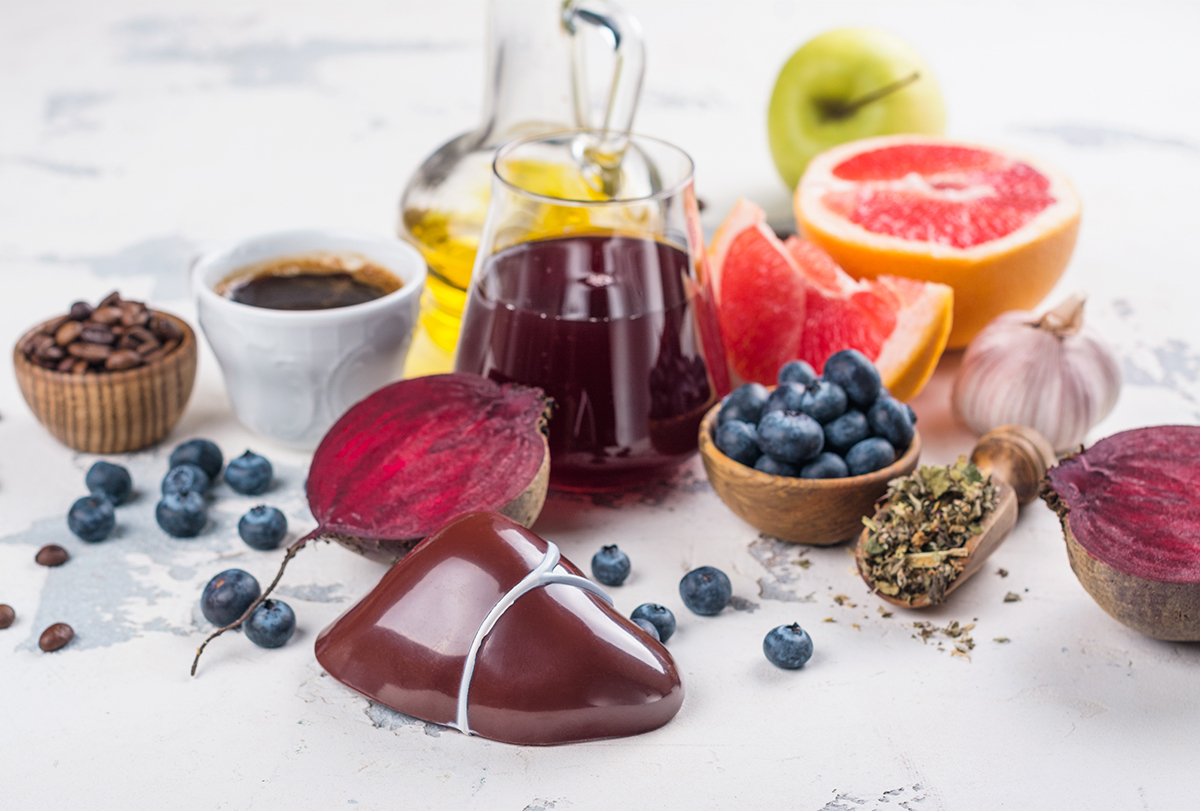
In this article, we’re going to look at the main functions of the liver, some diseases of the liver, specific foods that harm the liver, and the best foods to improve liver health.
Functions of the Liver
The liver has seven main functions, although it plays a role in many more.
- The liver metabolizes protein, fat, and carbohydrates.
- It stores and activates fat-soluble vitamins (A, D, E, K).
- It forms bile, a substance critical for digestion.
- It converts ammonia, which can be extremely toxic to the body, into urea so it can be excreted by the kidneys.
- It metabolizes steroids, such as certain medications.
- It metabolizes and detoxifies alcohol, drugs, and other toxic organic compounds.
- It acts as a filter and flood chamber, so that bacteria cannot enter the bloodstream and cause damage.
- In addition to these, the liver also plays a key role in the creation and absorption of cholesterol.
Illnesses or Diseases Associated With Liver Damage
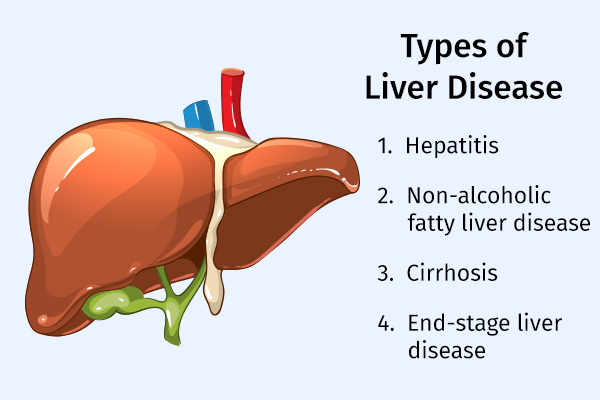
There are four main types of liver disease:
- Hepatitis, or inflammation of the liver, is usually caused by a virus and can be type A, B, C, D, or E. Types A and E are spread by the fecal or oral route and are infectious. Types B, C, and D are spread by blood or body fluids. Infections are often acute, but they can become chronic.
- Non-alcoholic fatty liver disease (NAFLD) is becoming the most common type of liver disease in the United States, mainly because of its association with obesity, type 2 diabetes, high cholesterol levels, and metabolic syndrome. Simply put, NAFLD is the buildup of fats on your liver from excess dietary consumption. However, it can progress to fat-induced hepatitis and even cirrhosis.
- Cirrhosis, or scarring of the liver, is primarily caused by excessive alcohol use. As mentioned above, it can also be a consequence of NAFLD.
- End-stage liver disease occurs when the liver is so damaged from various causes that it can no longer function well, causing a number of problems such as fluid buildup in your body, blood pressure irregularity, confusion, and malnutrition.
Food Items Harmful for the Liver
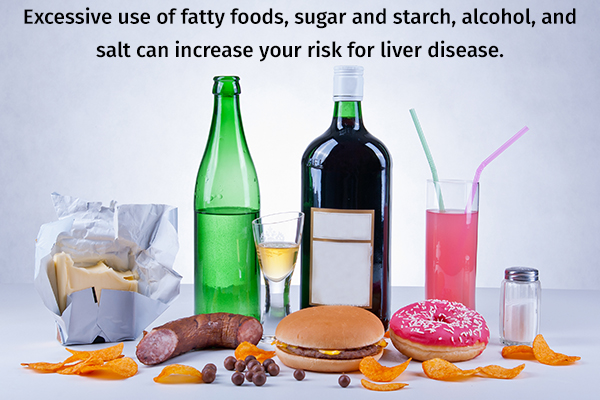
You certainly want to avoid damage to the liver and the progression of disease! Here are some foods that have been shown to cause damage to the liver or increase the risk of liver disease.
1. Fatty foods
Fatty foods, if in excess, can play a role in building up liver fat and increasing the risk of NAFLD. Specifically, foods high in saturated fats can contribute to higher risk. (1) Essentially, the liver can make its own fat, and saturated fat contributes to the process.
2. Sugar and starch
Sugar and starch include both sugar-sweetened beverages, which contain high-fructose corn syrup, and sweet foods, which also tend to have a lot of fat.
Fructose interrupts the chain of normal sugar metabolism called glycolysis and the creation of glucose (gluconeogenesis), (2) and it has been shown to overload the process, producing excess energy, which is ultimately stored in the liver. (3)
Fructose is delivered to the liver more readily because it is absorbed through the portal vein, which serves the liver. (1) The studies are not conclusive, but all the same, sugar and starch should be consumed in moderation to avoid excess calories.
3. Alcohol
Alcohol is one of the primary causes of cirrhosis. The liver is where the alcohol is metabolized and detoxified, and too much of it can overwhelm the liver. Alcohol also tends to contain a lot of sugar and calories, which both can contribute to fat buildup.
4. Salt
Sodium contributes to the regulation of water throughout the body. Since the liver is a flood and filter, too much salt may lead to fluid buildup in the body. Foods that are highly processed and contain sugar and fat also tend to contain a lot of salt. This overabundance contributes to the high risk of NAFLD.
Foods that are Best for Liver Health
Now that you know which foods harm the liver, take a look at some of the foods that benefit the liver! Here are some of the best ones.
1. Coffee
Coffee may have anti-inflammatory and some antioxidant benefits. It has been shown in studies to lower the risk of liver disease. (4) Researchers say that coffee is a plant food; therefore, it has the health benefits of substances called polyphenols. (5)
ALSO READ: What 3 Cups of Coffee Per Day Can Do for Your Liver?
2. Blueberries
Blueberries contain insoluble fiber and antioxidants. One study found that fruit fiber, in particular, contributed to the increase in liver health markers. (6)
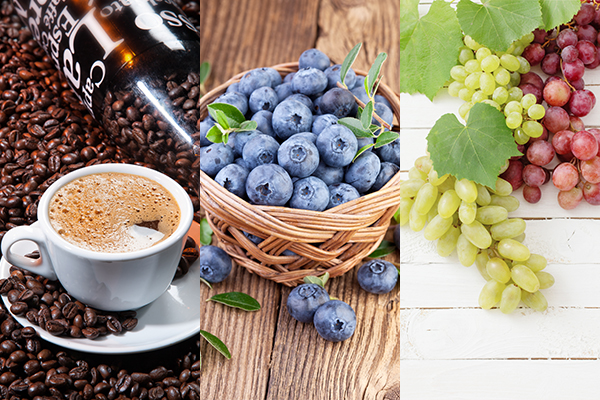
3. Grapes
Grapes contain insoluble fiber and antioxidants. Antioxidants are important because oxidative stress has been associated with liver damage, and a randomized study found that a combination of diet and antioxidant supplementation had the greatest effect on health. (7) In the same study, diet alone did show a significant effect.
4. Beetroot
Beets would have the same effect as grapes. They contain a class of antioxidants called anthocyanins, which reduce inflammation and improve blood flow.
5. Nuts
Nuts, particularly walnuts, are rich in polyunsaturated fatty acids (PUFAs) and have been shown to support homeostasis in the metabolic pathway. (8) This means they can help prevent the liver from absorbing too much or too little fat.
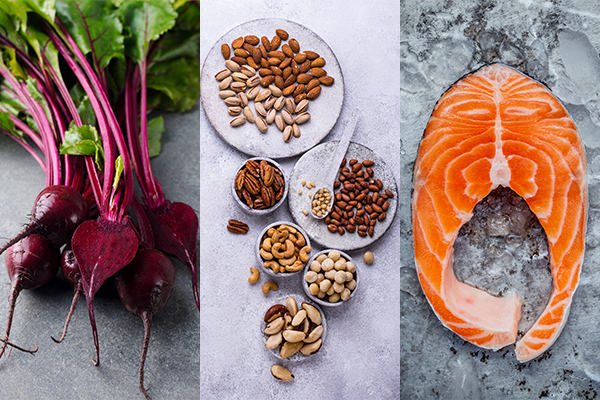
6. Fatty fish
Fatty fish contains primarily omega-3 fatty acids, which have long been shown to have anti-inflammatory effects. A review of recent studies has shown that omega-3s and PUFAs have a significant benefit on metabolic risk factors, liver fat content, and liver enzymes. (9)
7. Olive oil
Olive oil is a monounsaturated fatty acid (MUFA). This type of fat is beneficial for cardiovascular health, but it can also benefit liver health because of its anti-inflammatory properties.
8. Oatmeal
Oatmeal contains soluble fiber and can help with cholesterol reduction. Additionally, diets high in fiber may help lower this risk of liver cancer. (10)
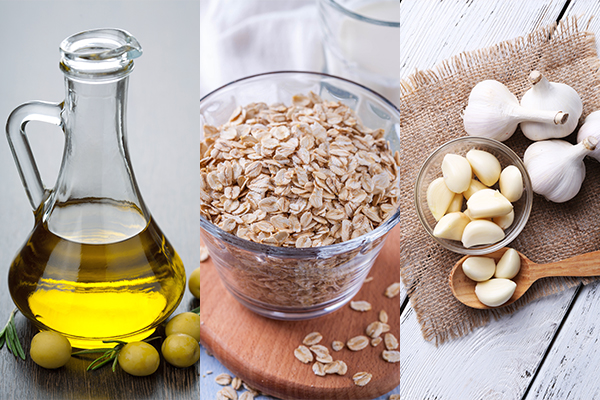
9. Garlic
Garlic is a prebiotic, which is a substance that feeds the probiotics in your gut. Several recent studies in both humans and animals have shown an interesting connection between the prevalence of NAFLD and gut bacteria. (11) This is an emerging trend and it underscores how important your gut is to your health!
These are just a few of the foods that are beneficial for the liver! Others include green tea, grapefruit, foods that are high in antioxidants, and foods high in healthy fats.
A Mediterranean diet is recommended now for liver health as well as cardiovascular health and blood pressure management. (12) It often includes the foods listed above and other whole grains, fatty fish, lots of fruits and veggies, and healthy fats.
Final Word
The liver plays an important role in the body in metabolizing and detoxifying substances. Diets high in sugar, fat, and salt contribute to the buildup of fat on the liver and NAFLD.
To reduce your risk, consume a diet high in whole grains, omega 3s, healthy fats, fiber, and lots of antioxidants, such as the Mediterranean diet.
- Was this article helpful?
- YES, THANKS!NOT REALLY


